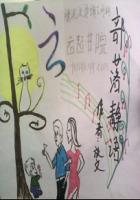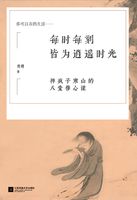still half animal, brutal, still helpless in face of the forces of nature, still ignorant of their own strength; and consequently as poor as the animals and hardly more productive than they. There prevailed a certain equality in the conditions of existence, and for the heads of families also a kind of equality of social position -- at least an absence of social classes -- which continued among the primitive agricultural communities of the civilised peoples of a later period. In each such community there were from the beginning certain common interests the safeguarding of which had to be handed over to individuals, true, under the control of the community as a whole: adjudication of disputes; repression of abuse of authority by individuals; control of water supplies, especially in hot countries;and finally when conditions were still absolutely primitive, religious functions. Such offices are found in aboriginal communities of every period -- in the oldest German marks and even today in India. They are naturally endowed with a certain measure of authority and are the beginnings of state power. The productive forces gradually increase; the increasing density of the population creates at one point common interests, at another conflicting interests, between the separate communities, whose grouping into larger units brings about in turn a new division of labour, the setting up of organs to safeguard common interests and combat conflicting interests.
These organs which, if only because they represent the common interests of the whole group, hold a special position in relation to each individual community -- in certain circumstances even one of opposition -- soon make themselves still more independent, partly through heredity of functions, which comes about almost as a matter of course in a world where everything occurs spontaneously, and partly because they become increasingly indispensable owing to the growing number of conflicts with other groups. It is not necessary for us to examine here how this independence of social functions in relation to society increased with time until it developed into domination over society; how he who was originally the servant, where conditions were favourable, changed gradually into the lord; how this lord, depending on the conditions, emerged as an Oriental despot or satrap, the dynast of a Greek tribe, chieftain of a Celtic clan, and so on; to what extent he subsequently had recourse to force in the course of this transformation; and how finally the individual rulers united into a ruling class. Here we are only concerned with establishing the fact that the exercise of a social function was everywhere the basis of political supremacy; and further that political supremacy has existed for any length of time only when it discharged its social functions. However great the number of despotisms which rose and fell in Persia and India, each was fully aware that above all it was the entrepreneur responsible for the collective maintenance of irrigation throughout the river valleys, without which no agriculture was possible there. It was reserved for the enlightened English to lose sight of this in India; they let the irrigation canals and sluices fall into decay, and are now at last discovering, through the regularly recurring famines, that they have neglected the one activity which might have made their rule in India at least as legitimate as that of their predecessors.
But alongside this process of formation of classes another was also taking place. The spontaneously evolved division of labour within the family cultivating the soil made possible, at a certain level of well-being, the incorporation of one or more strangers as additional labour forces.
This was especially the case in countries where the old common ownership of the land had already disintegrated or at least the former joint cultivation had given place to the separate cultivation of parcels of land by the respective families. Production had developed so far that the labour-power of a man could now produce more than was necessary for its mere maintenance; the means of maintaining additional labour forces existed; likewise the means of employing them; labour-power acquired a value. But the community itself and the association to which it belonged yielded no available, superfluous labour forces. On the other hand, such forces were provided by war, and war was as old as the simultaneous existence alongside each other of several groups of communities. Up to that time one had not known what to do with prisoners of war, and had therefore simply killed them; at an even earlier period, eaten them. But at the stage of "economic situation" which had now been attained, the prisoners acquired value; one therefore let them live and made use of their labour. Thus force, instead of controlling the economic situation, was on the contrary pressed into the service of the economic situation. Slavery had been invented. It soon became the dominant form of production among all peoples who were developing beyond the old community, but in the end was also one of the chief causes of their decay. It was slavery that first made possible the division of labour between agriculture and industry on a larger scale, and thereby also Hellenism, the flowering of the ancient world. Without slavery, no Greek state, no Greek art and science, without slavery, no Roman Empire. But without the basis laid by Hellenism and the Roman Empire, also no modern Europe. We should never forget that our whole economic, political and intellectual development presupposes a state of things in which slavery was as necessary as it was universally recognised. In this sense we are entitled to say:
Without the slavery of antiquity no modern socialism.
It is very easy to inveigh against slavery and similar things in general terms, and to give vent to high moral indignation at such infamies.














